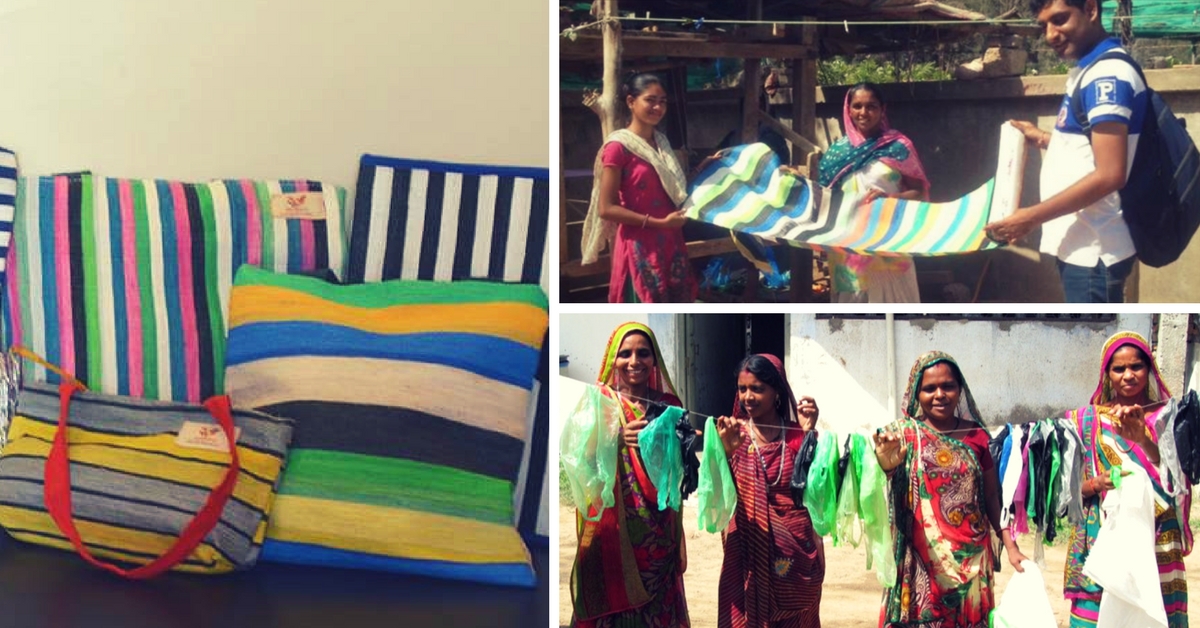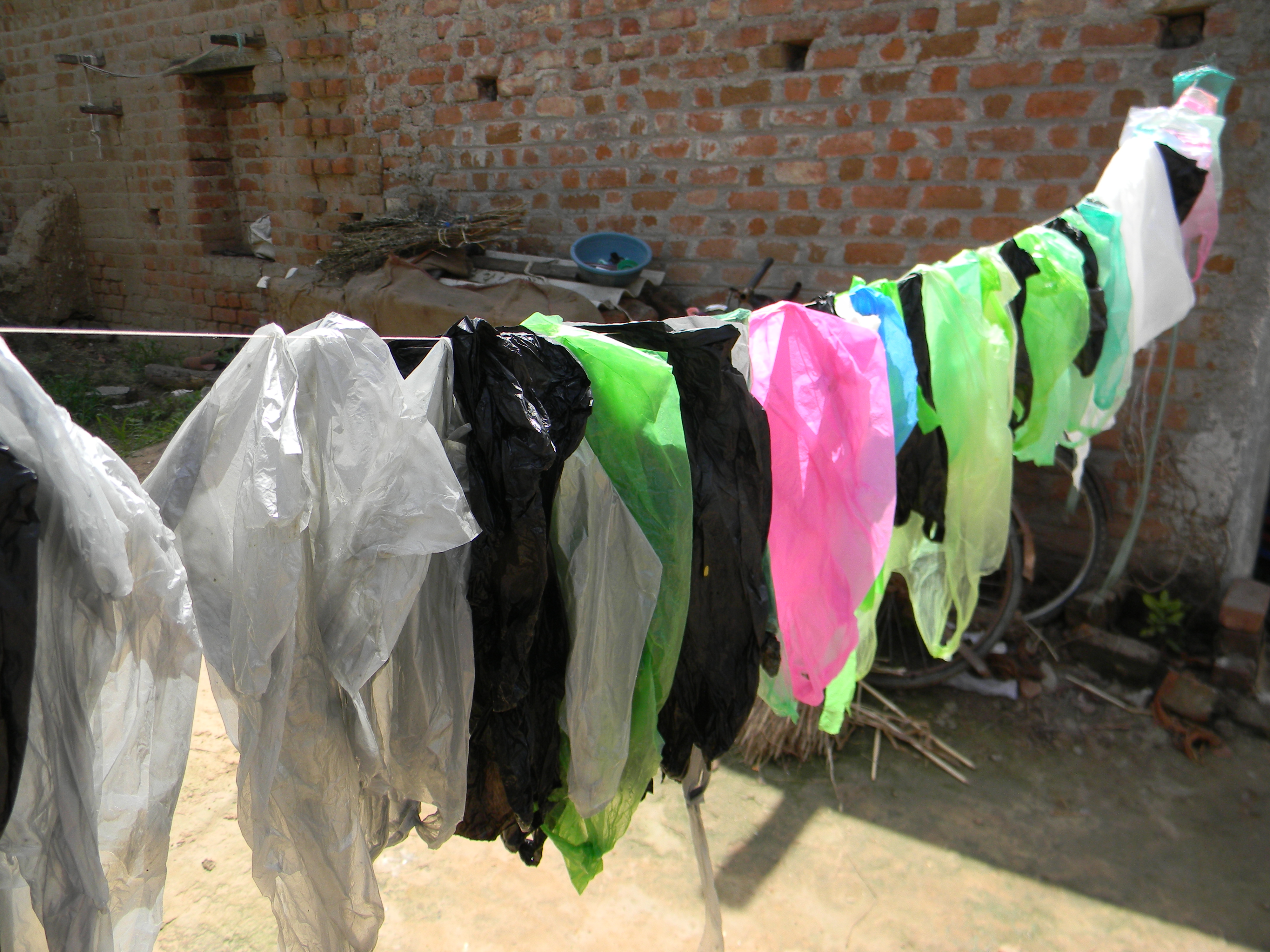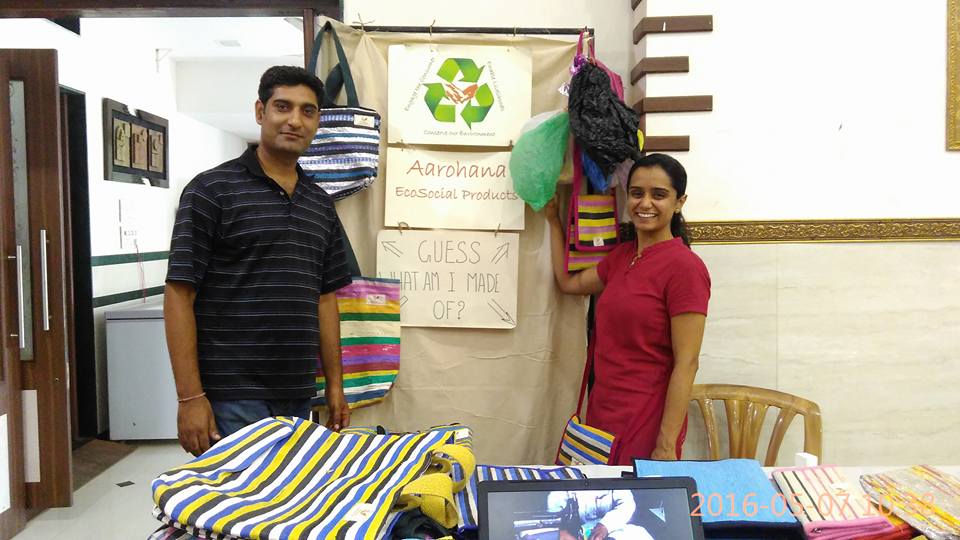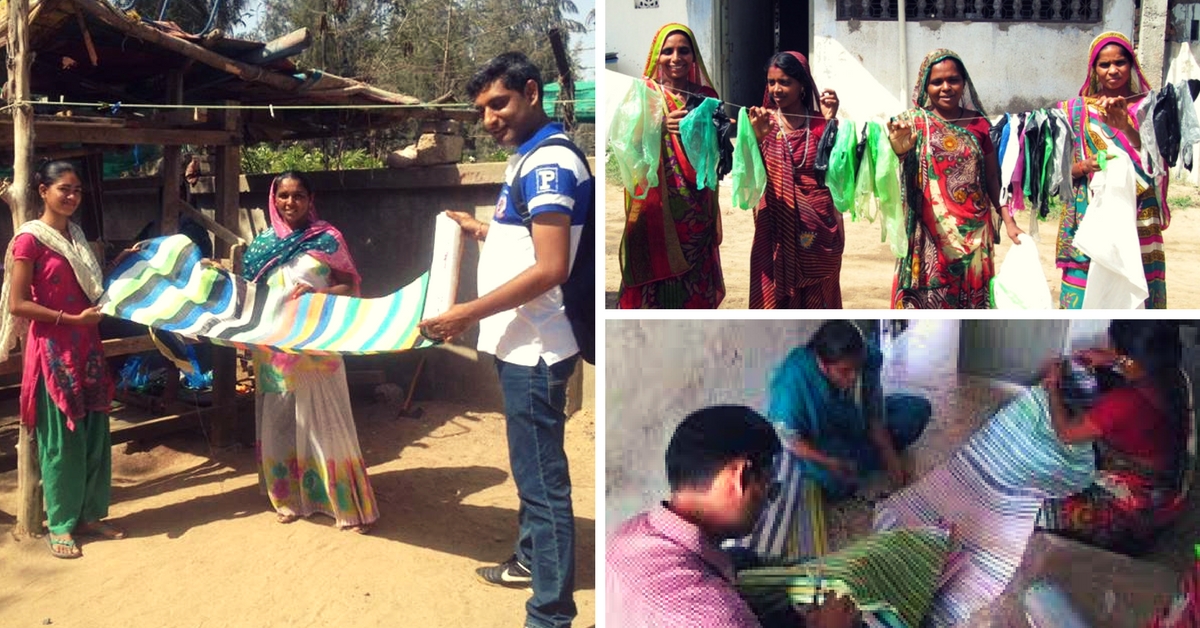From Plastic to Fantastic: How Pune-Based Entrepreneurs Upcycle Plastic Trash into Designer Purses!
Pune-based former IT professionals, Amita Deshpande and Nandan Bhat have launched their brand Aarohana Eco Social Development, which upcycles plastic bags into beautiful handbags, purses and other handicraft items.

Pune-based former IT professionals, Amita Deshpande and Nandan Bhat have launched their brand Aarohana EcoSocial Developments, which upcycles plastic bags into beautiful handbags, purses and other handicraft items.
Plastic bags have become indispensible in our daily lives. A majority of Indians don’t carry their own bags while shopping and end up bringing several polythene bags home. Eventually, the low-quality bags end up in the garbage, making room for more bags in the house. Trash cans overflowing with plastic waste reflect a harsh reality in the country today.
The thinner variety of plastic, below 50 micron, cannot be used for recycling.

This means that the plastic bags, which are used illegally by most small-time vendors and shopkeepers, end up in the garbage dump making rounds of the country’s riversides, drainage pipes and worse, the colons of animals that consume them.
The problem seemed universal and never ending to many, but former IT professionals Amita Deshpande and Nandan Bhat turned things around by upcycling these very plastic bags into fashionable handbags and purses.
Amita and Nandan have known each other for a long time. As students of IT engineering, the classmates bonded over their common love for trekking. While travelling to different trekking destinations across India, they would often notice the littering of disposable plastic items like polythene bags, cups, dishes and spoons. They both felt strongly about the issue, and would have heated discussions on how the problem could be solved.
Also read: These ‘Plastic’ Bags Are Actually Made of Potato & Tapioca – and Can Become Animal Food on Disposal!
Later, Amita went to the USA to complete her MS degree and Nandan began working for a corporate firm in India. The two kept in touch and as time passed, Amita began working with a US-based company. However, she decided she wanted to return to India and involve herself in socially relevant work. When she quit her job and returned to the country, she met Nandan, who was looking to start something of his own as well.
The two decided to collaborate and started Aarohana Eco Social Development. However, at this point, plastic upcycling didn’t feature on their agenda.

“We started with the aim of environment conservation, employment generation and overall development through that. We were thinking on the lines of recycling plastic, but the idea was too abstract,” says the duo.
A few months later, Amita and Nadan visited Kutch on a project, where they came across with a group of weavers, that was weaving waste plastic. After seeing the brilliant way to upcycle plastic, they knew immediately that it was what they had been looking for.
Collaborating with the group in August 2015, they began upcycling plastic bags and old wafer wrappers into beautiful handbags.
Since the past one and a half year, they have set up a unit in a tribal hamlet in Dadra Nagar Haveli, where tribal women and youth are provided with a source of livelihood. The cloth is woven by the tribal local women in the Dadra Nagar Haveli setup, while the Pune office looks after the designing and stitching of the bags.
“We are also looking to partner with waste pickers’ organisations, households, schools and corporates for the collection of plastic waste as well,” said Amita.
For upcycling, the plastic bags are first washed and dried. Then they are cut into strips. These strips are then woven into cloth using handlooms and charkhas. Once the cloth is ready, it is used to stitch handbags, purses, wallets and table mats.

Photos credit: Quicksand Design Studio/UnBox Festival
The bags are aesthetically pleasing, and thanks to the durability of plastic, are bound to last a long time. About 40 polythene bags are used to make one average-sized handbag.
“Currently, Aarohana has many different products like handbags, clutches, wallets, coasters, table mats and pencil-pouches. These are all called eco-social products, because there’s no harm to the environment in the process of upcycling. It doesn’t even require electricity! That’s the reason why it’s possible to pursue this kind of an enterprise in villages as well,” says Amita.
Dealing with plastic waste has become one of the most major issues that Indian cities face today. Hopefully, with more projects like Aarohana, the country will get one step closer to a pollution-free future!
(Originally published in Marathi in Anubhav magazine)
Also read: No More Butts: This Duo Is Recycling Every Part of the Cigarette Butt and Paying Collectors Too!
To know more about Aarohana, visit their official website here and Facebook page here.
Like this story? Or have something to share? Write to us: [email protected], or connect with us on Facebook and Twitter.
NEW: Click here to get positive news on WhatsApp!
If you found our stories insightful, informative, or even just enjoyable, we invite you to consider making a voluntary payment to support the work we do at The Better India. Your contribution helps us continue producing quality content that educates, inspires, and drives positive change.
Choose one of the payment options below for your contribution-
By paying for the stories you value, you directly contribute to sustaining our efforts focused on making a difference in the world. Together, let’s ensure that impactful stories continue to be told and shared, enriching lives and communities alike.
Thank you for your support. Here are some frequently asked questions you might find helpful to know why you are contributing?


This story made me
-
97
-
121
-
89
-
167











